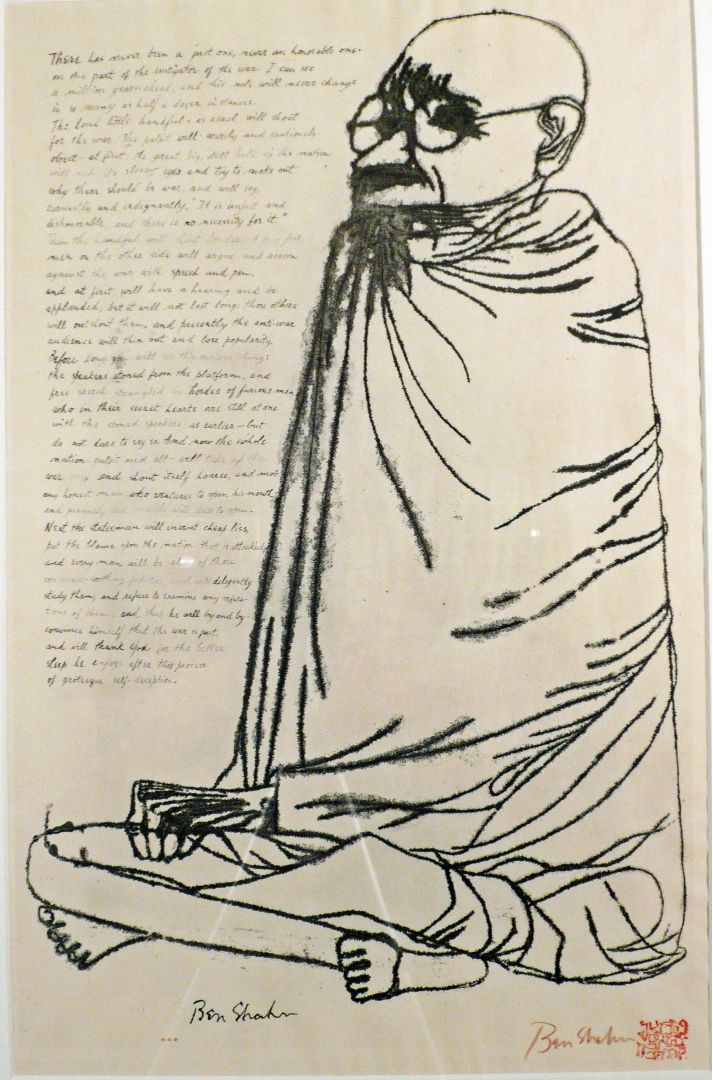Shahn, Ben. American, born Russia, 1898-1969. GANDHI. Collotype, 1965 Prescott, 214. 38 x 25 in (sheet), 32 x 21 in (image). Edition 200. Signed in pencil, and with the artist's red chop. Framed. Shahn did a drawing of Gandhi for Look Magazine in 1964, to illustrate an article on Gandhi by Leo Rosten (known for his books on Yiddish language) which he later used as the basis for three different prints. In 1965 he produced a serigraph (silkscreen) version of the drawing which was published in a small edition (only 29 were known to Kenneth Prescott at the time he wrote "The Complete Graphic Works of Ben Shahn" in 1973). The serigraph is No. 57 in Prescott's book; it contains the portrait only, not the quotation. Also in 1965 Shahn did the Collotype version (Prescott 214), which is almost the same size as the serigraph (the sheet is 38 x 25 inches), and a photo-offset version which is much smaller (the sheet is only 17 x 11 inches). Both of these versions contain the lettering, which is a quotation from Mark Twain's "The Mysterious Stranger." The nature of the collotype process is such that it produces a soft, blurred line, and in this respect it differs significantly from the serigraph version in which the line is thin, sharp and tight. Prescott says of the Shahn portrait of Gahndi: "It is not surprising that Shahn wanted to pay his respects to the great man, the prophet of non-violence. Through the magic of his inimitable brush line Shahn has imbued the seated Gandhi with a quiet grandeur. The figure commands attention. The curved line of the head, the wrinkles of the brow, lead directly to the steady gaze of the eyes. The thin legs, abnormally small feet, and the bony hand emphasize the elongated torso of the figure, seated in the cross-legged position of meditation. The erect back suggests controlled strength and perhaps, by implication, a moral and ethical strength as well." The quotation, about War, reads as follows: "There has never been a just one, never an honorable one - on the part of the instigator of the war. I can see a million years ahead, and this rule will never change in so many as half a dozen instances. The loud little handful - as usual - will shout for the war. The pulpit will - warily and cautiously - object - at first; the great, big, dull bulk of the nation will rub its sleepy eyes and try to make out why there should be a war, and will say
Follow us
Contact Us
ed@edpollackfinearts.com
Copyright © 2026 - Edward T. Pollack Fine Arts




